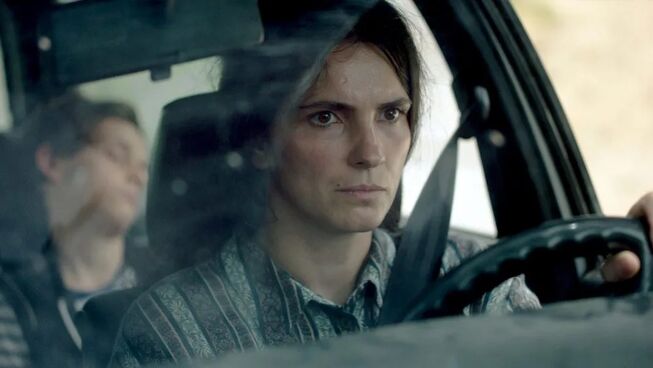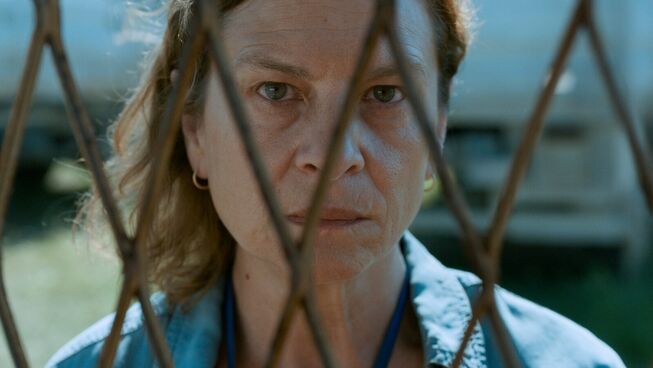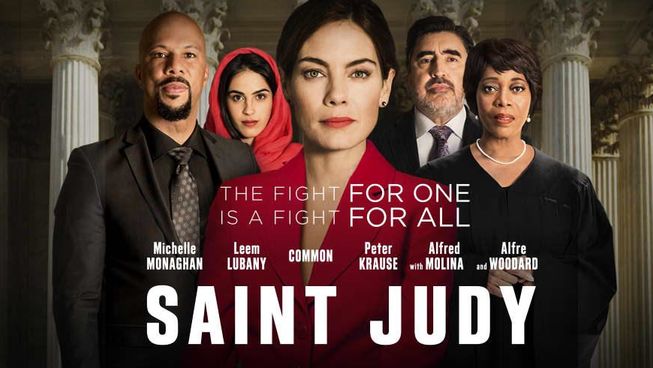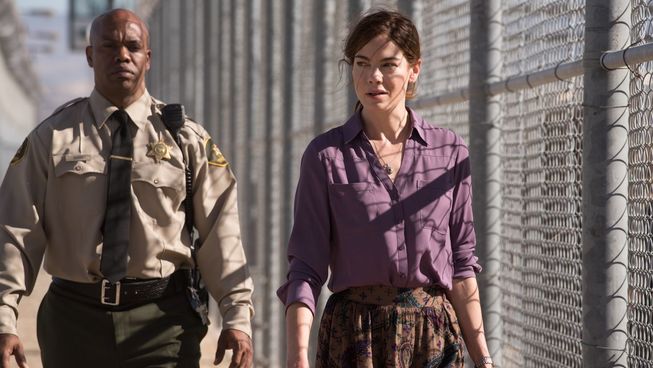
4 out of 5 stars
This refugee story is inspired by the true story of Fahrije Hoti and other widows residing in Krusha e Madhe after the 1999 Kosovo war. Writer/director Blerta Basholli’s account of the determination and defiance of these women while providing insight into what life was like for women in Krusha after the Kosovo war. It was thought that a large portion of the local men had been massacred by Serbian forces; the remaining ‘widows’ struggled to find meaning in their lives. These women must find an income for their families and survive while waiting to see how their futures unfold.
Fahrije (Yllka Gashi) is struggling to keep her family financially afloat since her husband went missing during the war in Kosovo seven years ago. The widow must contend with a patriarchal society that judges and treats women poorly as she cares for her family and a fledgling business. Since she cannot determine if her husband is still alive, the businesswoman has to work to set up her life and keep things together. At home, Fahrije takes care of a young son, an attitude-filled teenage daughter, and a father-in-law who uses a wheelchair (Çun Lajçi). Along with her family, she must also care for her missing husband’s row of beehives. Initially, the sale from the honey provides them a modest income, but is barely enough to keep them financially afloat.
She co-runs the local women's organisation while caring for her family. The women meet regularly to provide ongoing moral support and dwindling financial aid for fellow struggling widows. Despite suffering from the effects of local gossip and possible violence for these desperate women, Fahrije decides to use a donated car to allow the women to become self-sufficient and earn a living. Even though widows are not expected to work, she gets a driver’s license and sets up her own small business.
This unsuspecting entrepreneur makes home-cooked Krusha Ajvar (spicy roasted pepper relish) to sell at a large-scale supermarket. The single mother starts making and selling the beloved local Ajvar between learning how to drive and utilising her home-cooking skills. As her business grows, she realises that this will not only provide money for herself, but also arrives at a solution that will put her entire grieving sisterhood to work and provide them with much-needed financial support at such a critical time.
Hive is an emotional and powerful film that highlights the difficulties of a woman who needs to be both strong and independent in a predominantly Muslim, patriarchal and sexist society. This true-to-life story of Fahrije should prove to be profoundly inspiring to women worldwide. Her life illustrates that a woman can achieve anything with the right amount of both resilience and tenacity.
Reel Dialogue: Caring for widows and orphans
The challenges of widows and orphans are written throughout the Bible. Within the pages of this book, it is revealed that God cares very deeply for them. He also commands his followers to protect and care for them.
Give justice to the weak and the fatherless; maintain the right of the afflicted and the destitute. - Psalm 82:3
You can continue to read how God Himself steps in to fill the role of protecting and caring for orphans and widows. “A father to the fatherless, a defender of widows, is God in his holy dwelling” (Psalm 68:5). Yet, this does not take away our responsibility to care for those helpless at such a critical time in their lives. “You, LORD, hear the desire of the afflicted; you encourage them, and you listen to their cry, defending the fatherless and the oppressed, so that mere earthly mortals will never again strike terror” (Psalm 10:17–18).
From the earlier writings of the Bible to the newer letters, it consistently shows that we are meant to take care of the needs of orphans and widows. It is part of the faith that is “pure and faultless” (James 1:27).






